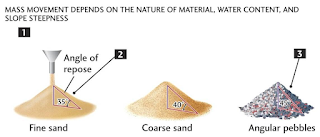Pharmaceutics: Brief Overview
Introduction:
Pharmaceutics is a branch of pharmacy that deals with the development, manufacture, and evaluation of drugs, including the formulation, stability, and effectiveness of dosage forms. It involves the study of the physical and chemical properties of drugs and their interactions with various excipients and delivery systems, with the ultimate goal of designing and producing safe and effective medicines for human use. Pharmaceutics also encompasses the study of drug delivery systems, including oral, transdermal, inhalation, and parenteral routes, as well as the development of novel drug delivery technologies such as nanotechnology and biopharmaceutics.
Pharmaceutics is an important field of study because it plays a crucial role in the development of safe and effective medicines. Here are some of the reasons why pharmaceutics is important:
Drug development: Pharmaceutics is involved in the development of new drugs, including the design and testing of various drug formulations, delivery systems, and dosage forms. This helps to ensure that new drugs are safe, effective, and have optimal therapeutic benefits.
Quality control: Pharmaceutics is essential for ensuring the quality and stability of drug products. This includes the evaluation of raw materials, manufacturing processes, and finished products to ensure that they meet regulatory standards and are safe for patient use.
Drug delivery: Pharmaceutics plays a key role in the development of drug delivery systems, including oral, transdermal, inhalation, and parenteral routes. These delivery systems are designed to improve drug efficacy, reduce side effects, and enhance patient compliance.
Biopharmaceuticals: Pharmaceutics is involved in the development of biopharmaceuticals, which are drugs derived from living organisms such as proteins and antibodies. These drugs have revolutionized the treatment of many diseases, including cancer and autoimmune disorders.
Nanotechnology: Pharmaceutics is also involved in the development of nanotechnology-based drug delivery systems, which have the potential to improve drug efficacy and reduce side effects.
Overall, pharmaceutics is important for ensuring the safety, efficacy, and quality of drugs, as well as for the development of new drug delivery technologies and biopharmaceuticals.
There have been many scientists who have contributed to the development of the pharmaceutics branch. Here are some of the important scientists and their contributions:
Paracelsus: A Swiss physician and alchemist who lived in the 16th century. He is known for his contributions to the field of toxicology, and his famous quote "The dose makes the poison" is still widely used in pharmacology.
Friedrich Sertürner: A German pharmacist who discovered morphine in 1804, the first active ingredient to be isolated from a plant source. This discovery paved the way for the development of many other potent drugs.
Paul Ehrlich: A German physician and immunologist who developed the concept of selective toxicity, which is the basis of modern chemotherapy. He also developed the first effective treatment for syphilis, and won the Nobel Prize in Physiology or Medicine in 1908.
Martin Kirschner: A German surgeon and pharmacologist who introduced the concept of controlled-release drug delivery systems in the 1930s. He developed the first drug delivery system based on waxes, which was used for the treatment of tuberculosis.
Gertrude Elion: An American biochemist who developed many important drugs, including the first immunosuppressant drug, azathioprine, and the antiviral drug acyclovir. She won the Nobel Prize in Physiology or Medicine in 1988.
Robert Langer: An American chemical engineer who is known for his contributions to the development of drug delivery systems based on biodegradable polymers. He has developed many innovative drug delivery technologies, and has won numerous awards for his work.
These are just a few examples of the many scientists who have contributed to the development of the pharmaceutics branch.




Fantastic post; thanks for the knowledge. Please browse leading PCD pharma and third-party manufacturers across India. PCD pharma franchise opportunity in Kamrup Metropolitan & Jorhat, Assam
ReplyDeleteParke taşı fiyatları en çok taşın dayanıklılığına ve su geçirgenliğine Parke taşı fiyatları bağlı olarak değişiyor.
ReplyDelete